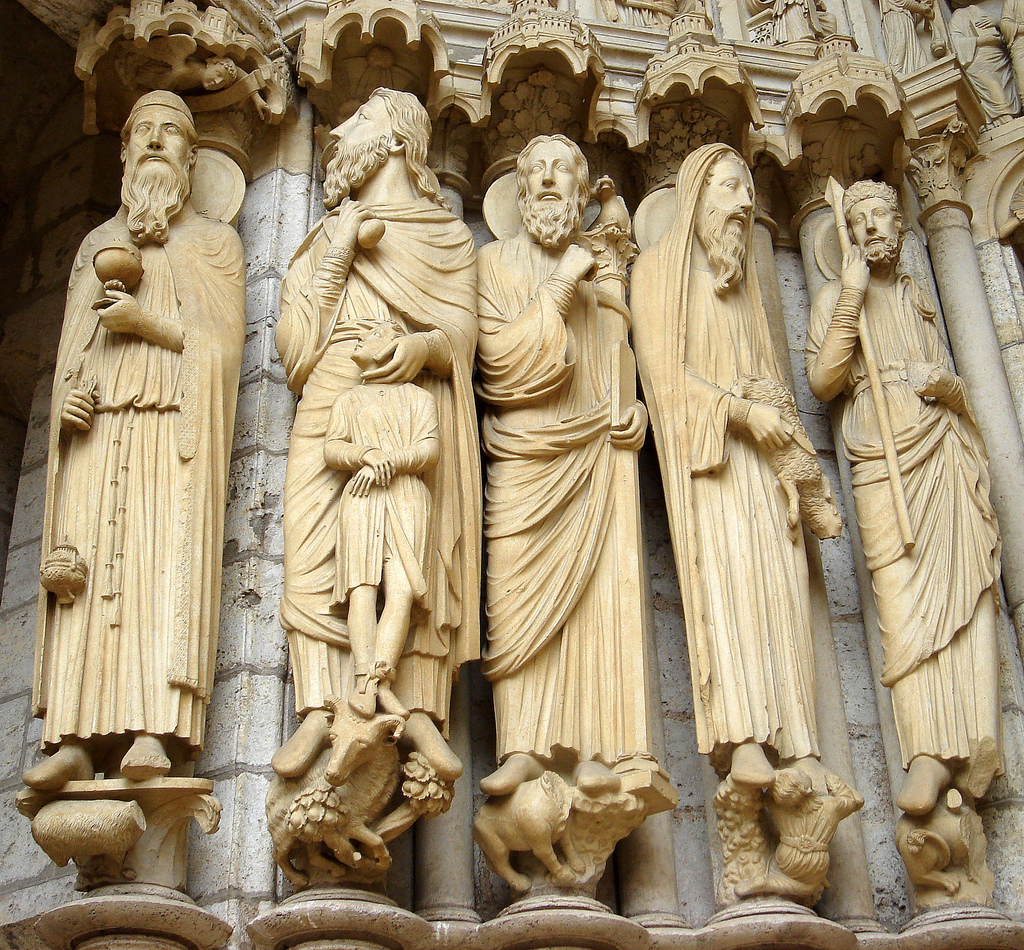
Why is the genealogy of Christ different in the Gospels of Matthew and Luke, particularly from King David down to Jesus? And who was Joseph’s father? Matthew says Jacob whilst Luke says Heli. Is there any significance in the fact that Matthew gives Jesus’ genealogy starting from Abraham whilst Luke goes all the way back to Adam?
We can begin with the importance of genealogies in Jewish culture. For the Jews, as for other Eastern peoples of nomadic origin, family trees were of great importance since a person’s identity was linked to family and tribe, more so than to place of birth.
In the case of the Jews, there was the added religious significance of the genealogy establishing that one belonged by blood to the chosen people, to the kingly family of David or to the tribe of Levi, from which priests were chosen.
Since these rights passed down the male line, usually only men’s names appear.
In Matthew’s genealogy, four women are mentioned: Tamar, Rahab, Bathsheba and Ruth. All of them were Gentiles, not Jews, and all except Ruth were guilty of sexual immorality, showing that God came to save all peoples, including sinners.
As you note, Matthew traces Jesus’ origin starting from Abraham while Luke starts from Jesus and goes all the way back to Adam.
Since Matthew was writing primarily for Christians of Jewish origin, he wanted to show that Jesus belonged to the chosen people descended from Abraham and to the house and family of King David, and hence was the promised Messiah.
Luke was writing primarily for Christians of Gentile background and, by tracing Jesus’ origin back to Adam, he shows that Jesus was truly man and had come as priest to save all mankind.
In this sense, St Thomas Aquinas writes, “Luke sets forth Christ’s genealogy, not at the outset but after Christ’s baptism, and not in the descending but in the ascending order, as though giving prominence to the priest who expiated our sins at the point where the Baptist bore witness to him, saying, ‘Behold him who takes away the sins of the world.’ And in the ascending order he passes Abraham and continues up to God, to whom we are reconciled by cleansing and expiating” (STh 3, 31, 3 and 3).
If one compares the two genealogies, from Abraham to David, they are the same whereas from David on they are completely different.
It should always be remembered that some people in the Bible had more than one name (Abram/Abraham, Jacob/Israel, Solomon/Jedidiah), and that gaps in a family tree were quite common.
This alone, however, is not sufficient to explain the great differences between the genealogies. More than a dozen explanations have been given, two of which are more plausible.
The first is that both evangelists are giving Christ’s genealogy following the line of St Joseph, but one follows the law of Levi and the other does not.
According to this law, if a man died without having children his brother was to marry the widow and the first-born son of this marriage was the legal son of the deceased man (cf Deut 25:5-6).
The other explanation is that Matthew’s genealogy follows St Joseph’s line, through King David’s son Solomon, while Luke follows Mary’s line, through David’s son Nathan.
In both cases, Jesus is descended from King David. If this explanation is correct, Joseph’s father was Jacob and Mary’s father Heli.
But this raises the further question of why Luke says Mary’s father’s name was Heli, whereas Tradition calls him Joachim.
Another interesting aspect of Matthew’s genealogy is the inclusion of King Jeconiah, one of the last kings before the Babylonian captivity.
God had pronounced a curse on Jeconiah such that no descendant of his was to sit on the throne of David: “… for none of his offspring shall succeed in sitting on the throne of David, and ruling again in Judah” (Jer 22:30).
Since St Joseph was a linear descendant of Jeconiah, neither he nor his offspring could sit on the throne of King David. But Jesus was not the son of Joseph.
He was the son of Mary, as Matthew points out (cf Mt 1:19), and thus he was able to fulfil the prophecy of the angel to Mary: “the Lord God will give to him the throne of his father David” (Lk 1:32).
As is clear, we can answer some questions about the genealogies but others remain.